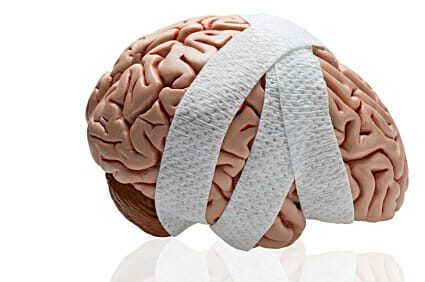Can I Claim Compensation if I Have Suffered a Brain Injury?
Brain injuries, even mild ones, can have life-altering outcomes. If you have suffered a traumatic brain injury (TBI) caused by the negligence of another, you are entitled to fair compensation. What that compensation entails will be based on the severity of the injury and the extent of the resulting damages.
What is a Traumatic Brain Injury?
A traumatic brain injury (TBI) occurs when a blow, jolt, impact, or penetrating injury to the head disrupts normal brain function. Concussions are a very common example of a traumatic brain injury.
According to the Centers for Disease Control and Prevention (CDC), TBIs result in about 2.5 million emergency department visits and 50,000 deaths every year. Additionally, it is estimated that there are 5.3 million people in the United States living with TBI-related disabilities.
The severity of a traumatic brain injury can vary, ranging from mild, such as a concussion, to severe, which can include brain bleeds, brain swelling, and brain damage. Severe brain injuries can result in long term disability and diminished or lost senses.
How is the Severity of a Traumatic Brain Injury Measured?
Generally, the severity of a traumatic brain injury is measured by the Glasgow Coma Scale, a 15 pint scale that estimates and categorized the outcome a brain injury will have on social capability or dependence on others.
The test reviews motor responses, verbal responses, and eye opening responses and assigns the following values:
- I. Motor Response
6 – Obeys commands fully
5 – Localizes to noxious stimuli
4 – Withdraws from noxious stimuli
3 – Abnormal flexion, i.e. decorticate posturing
2 – Extensor response, i.e. decerebrate posturing
1 – No response - II. Verbal Response
5 – Alert and Oriented
4 – Confused, yet coherent, speech
3 – Inappropriate words and jumbled phrases consisting of words
2 – Incomprehensible sounds
1 – No sounds - III. Eye Opening
4 – Spontaneous eye opening
3 – Eyes open to speech
2 – Eyes open to pain
1 – No eye opening
The points are then tallied and the total establishes one of the following prognoses:
- Mild (13-15):
- More in-depth discussion on the Mild TBI Symptoms
- Moderate Disability (9-12):
- Loss of consciousness greater than 30 minutes
- Physical or cognitive impairments which may or may resolve
- Benefit from Rehabilitation
- Severe Disability (3-8):
- Coma: unconscious state. No meaningful response, no voluntary activities
- Vegetative State (Less Than 3):
- Sleep wake cycles
- Aruosal, but no interaction with environment
- No localized response to pain
- Persistent Vegetative State:
- Vegetative state lasting longer than one month
- Brain Death:
- No brain function
- Specific criteria needed for making this diagnosis
What are My Legal Options After Suffering a Traumatic Brain Injury?
If you have suffered a brain injury caused by the negligence of another, it is in your best interest to contact an experienced personal injury attorney.
Even mild traumatic brain injuries can result in excruciating pain and may continue to hamper a person’s ability to communicate, remember items, and perform essential job-related tasks well after the pain has subsided. More severe cases can leave a person incapable of performing routine tasks, leaving them dependent on others, or can cause a person to fall into a vegetative state.
Thomas J. Henry has been representing victims of traumatic brain injuries for almost 30 years and understands just how life-altering a brain injury can be, even if the symptoms are not always outwardly visible.
Thomas J. Henry has access to leading brain injury experts who will be able to establish the extent of your injury, how your injury have and will continue to affect your quality of life, and provide concise and compelling testimony to jurors explaining what this means for you as a victim. By establishing your claim to compensation, we can help you recover damages that are lawfully owed to you, including medical bills, rehabilitation bills, lost wages, pain and sufferings, and mental anguish.



